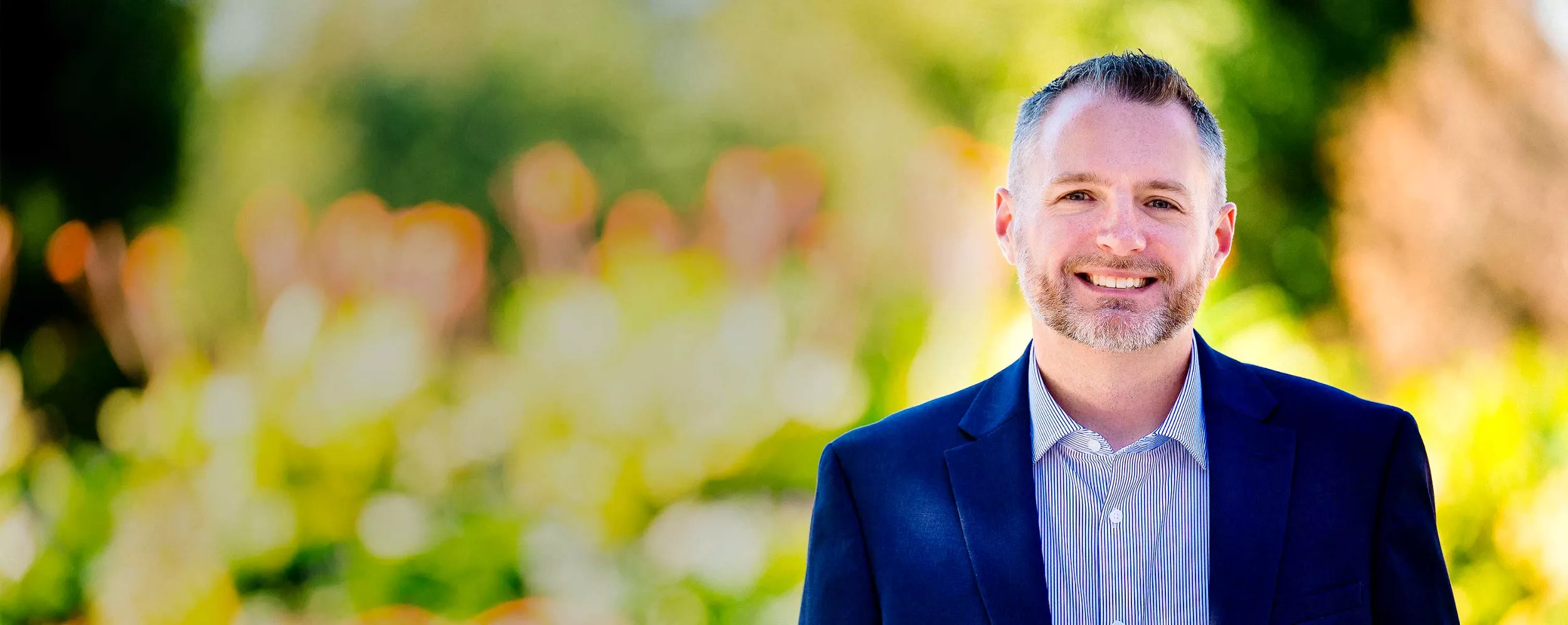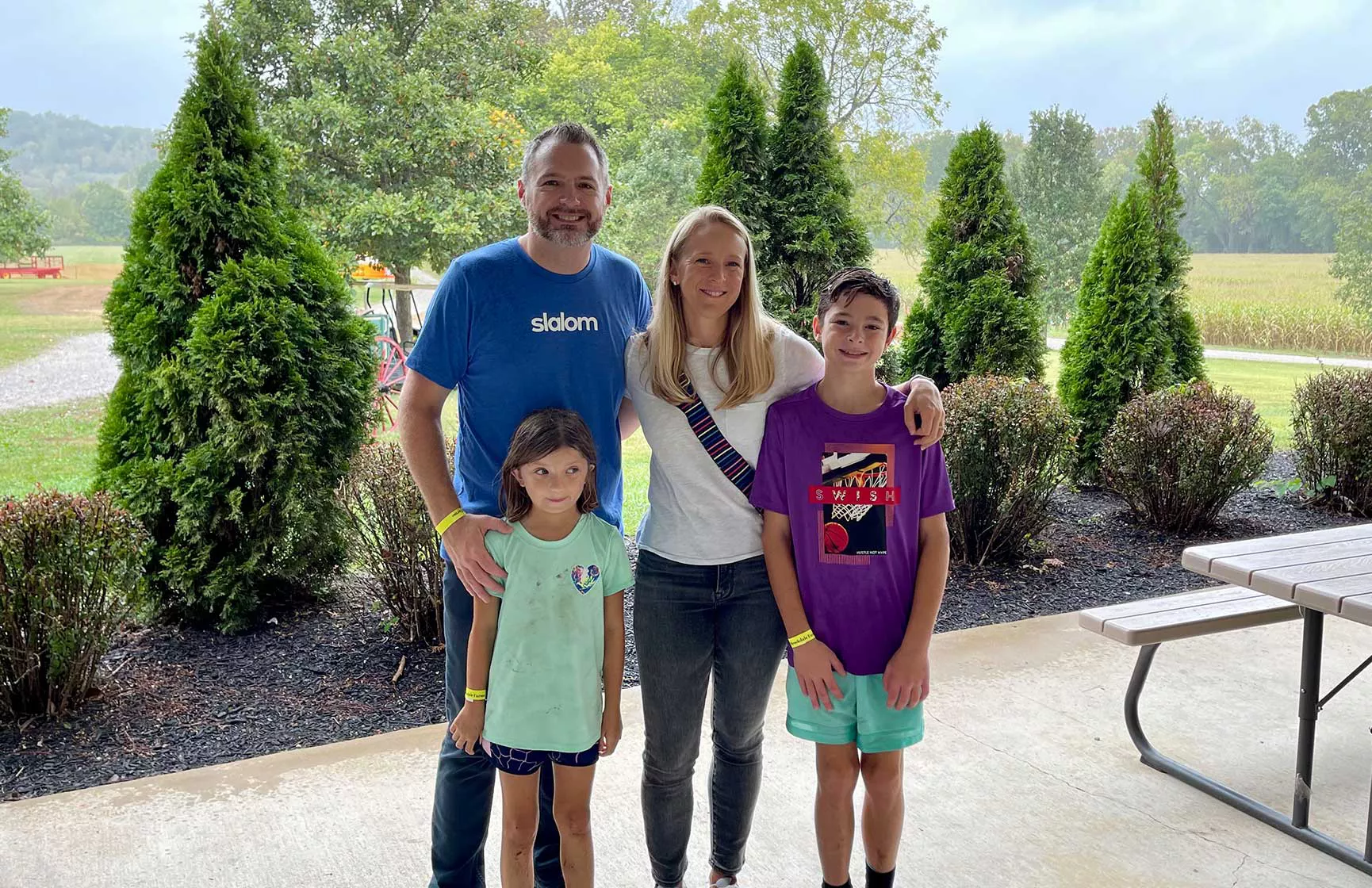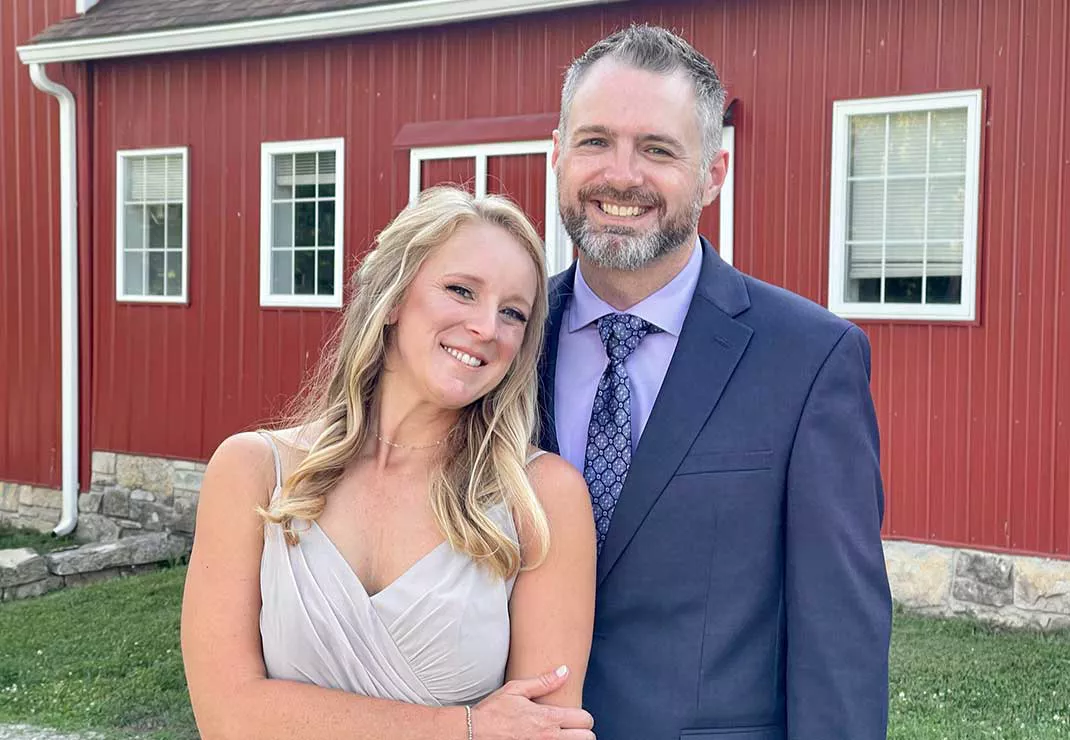Q&A with Saint Fults: General Manager, St. Louis & Kansas City

Our St. Louis and Kansas City GM discusses community, lessons from mentors, and integrity in leadership.
What was your path to St. Louis? What distinguishes the community here?
I’ve been in St. Louis over 15 years. My wife is from St. Louis and thus I am also from St. Louis!
I absolutely love it here—it’s a metropolitan small town. The sense of community is strong, and people are very connected. A lot of folks stay here for generations. We have people who’ve lived in the same neighborhood their entire lives, and their parents and grandparents live in the neighborhood. It makes St. Louis unique. The network of relationships is always very strong as people grow and move throughout their lives and careers. The concentric circles of who you know overlap more and more as time progresses.
We joke a lot in the office that doing careless work isn’t an option because the chance that you’re going to be at a soccer game on Saturday and see your clients is super high.
And does the St. Louis business community have that same sense of connection?
St. Louis gets overlooked and is too often seen from the outside as an old Rust Belt city. But there are massive companies here that do amazing work. There are so many branches of national corporations and regional headquarters located here. There’s a huge biotech footprint. There’s a huge technology footprint. We have a thriving startup community and a thriving university community doing incredible work. There are innovative forces at work here that people from the outside miss. People love to live here and want it to be the best place it can. The business and nonprofit communities here are symptoms of the real thing: we want St. Louis to do well.
St. Louis is also a very diverse community, and Slalom is a diverse company. What’s important in building a diverse team and work culture?
St. Louis has a history that’s heavily based in racism. The Dred Scott case was decided here. The Missouri Compromise is literally named for our state. It permeates everything in the city, down to the way neighborhoods are laid out and the way school systems have worked. For us to be passive about this is not an option.
In the last couple of years, we’ve made diversity and representation a major pillar of our market. We continue to put initiatives in place so that we can best represent the community. We are continuously trying to improve our internal systems to avoid systemic bias, to get a more diverse slate of candidates, and to diversify the way we recruit. We’ve analyzed title and pay equity across different demographics. And now we’re looking to build even better relationships in the community.
Tell us a bit about your pathway to consulting.
I started out in health and human services and social work right out of college. I worked a lot with kids in juvenile corrections and rehabilitation, and then for the state government performing child abuse investigations. Afterward, I moved into privatized foster care and spent over a decade of my life in that sector—investing in people and making people better, whatever shape that took.
I had focused much of my career on building these programs to create better outcomes for people in communities when an opportunity with a technology company came up. They were looking for somebody to run projects. I learned a ton with them and ended up thriving in the Agile and digital product space.
Eventually, Slalom came to town. It felt entrepreneurial and vested in doing the right things and not just trying to get the next dollar. Work that starts locally and remains focused on our community speaks to my soul and to why I like this city.
Do you still get to use some of those social work skills?
Every day. The core of any business is people, and everything I experienced was about building systems around people as they really are. And I think that naturally infuses its way into our business. We focus on customers. It’s really about the person, what they experience, what they get out of it.
Describe your personal leadership style.
I’m direct and transparent. I believe in being straightforward, and I’m a big advocate of data-driven, data-informed work.
I also place a lot of importance on integrity. Let’s do what we say we’re going to do, admit when we didn’t get it done, and then figure out how to get better after that. It boils down to being honest with where you are, where you’re going, and then trying to openly acknowledge if you fell short.
What do you look for in a mentor?
I’ve had many mentors. I think the folks I gravitate to usually have the same kind of persona: someone who is very direct, who challenges and pushes me toward what more I can possibly do. And I am drawn to mentors who will gut-check my BS, for lack of a better term.
Can you tell us about a lesson you learned from a mentor and how it shaped your own leadership style?
One of my most impactful mentors was also one of my first—an amazing nurse manager who I worked with in children’s psychiatric. It was one of my first opportunities in a leadership role, and I came in with an attitude and an ego. I wanted to move people off the team. He pulled me aside and said, “Listen, we’re asking you to be a leader because you can work with people on this team. We’re not asking you to cut people. We’re asking you to build people. That’s what we need in a leader. We think you’re that person, but the way that you’re acting tells me you’re not. Which one is it? Because a real leader takes the people around them and works to make them better.”
It fundamentally changed my entire perception of my role and myself. Leadership isn’t about me getting the limelight. It’s the results of all the folks around me that speak to who I am. Everyone else on the team succeeding—that’s the true reflection of leadership.
How do you spend your time away from work?
I have two very active children who love activities of every nature, so I spend a lot of time going to grade-school and middle-school sports games. I’m the over-zealous parent on the sidelines, much to the chagrin of both my children. A lot of my downtime is with just my wife and kids. We like to go to parks, go outside, and play. My family is awesome.

